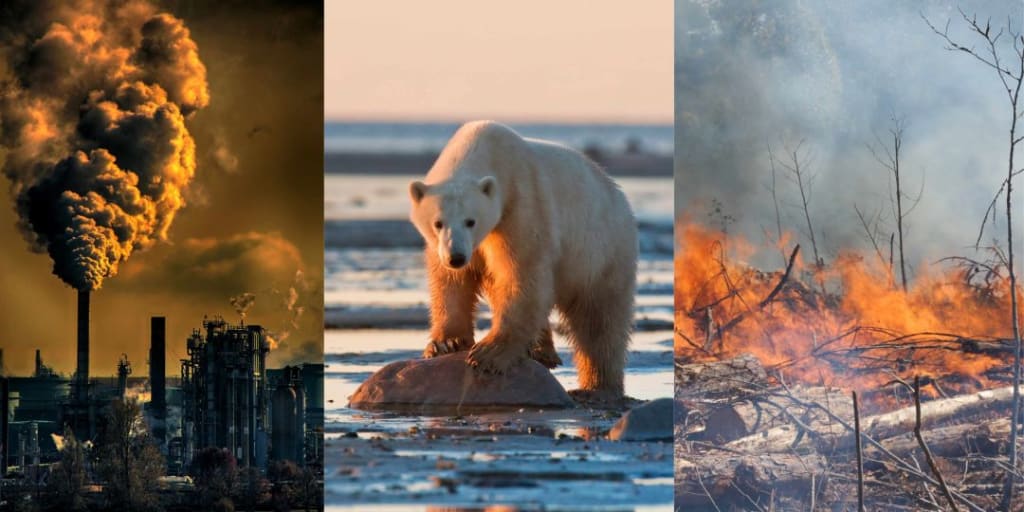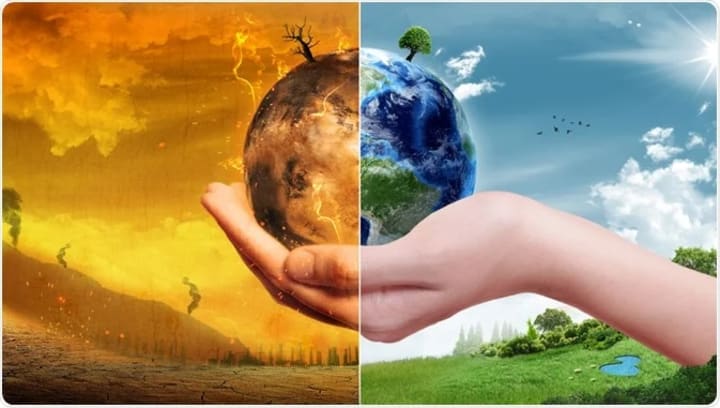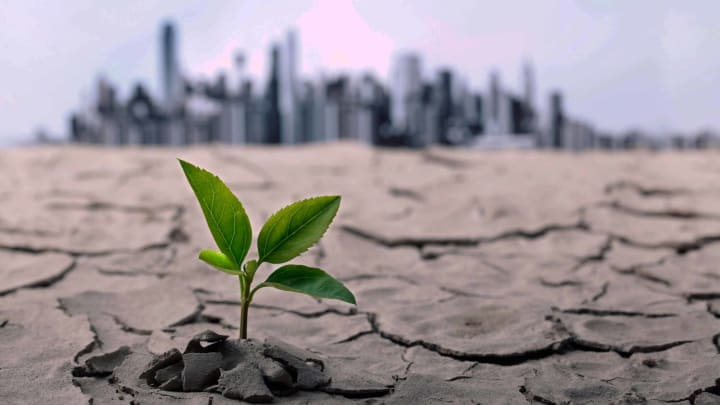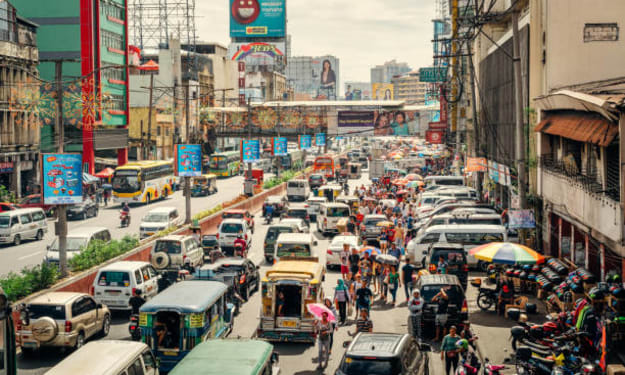Climate Change and Our Future: A Call to Action
-Nicholas Reese

Climate change has emerged as one of the most pressing challenges of our time, affecting every corner of the globe and threatening the well-being of future generations. The Earth's climate is rapidly changing due to human activities, primarily the burning of fossil fuels and deforestation. This essay will explore the impacts of climate change, the potential consequences for our future, and the urgent actions required to mitigate its effects.

I. Understanding Climate Change:
Climate change refers to long-term shifts in weather patterns and average temperatures, resulting from the increase in greenhouse gas emissions in the atmosphere. The primary greenhouse gas responsible for this phenomenon is carbon dioxide (CO2), produced by the burning of fossil fuels such as coal, oil, and natural gas. These emissions trap heat, leading to global warming and a cascade of environmental, social, and economic impacts.
II. Environmental Consequences:
The effects of climate change are evident in various aspects of the environment. Rising temperatures contribute to the melting of polar ice caps and glaciers, leading to rising sea levels. This, in turn, poses a significant threat to coastal cities and communities, increasing the frequency and intensity of flooding and coastal erosion. Additionally, altered weather patterns result in more frequent and severe natural disasters, such as hurricanes, droughts, and wildfires.
III. Social and Economic Implications:
Climate change also has far-reaching social and economic consequences. Disruptions in ecosystems and agricultural productivity threaten food security, potentially leading to food shortages and escalating prices. Extreme weather events disproportionately affect vulnerable communities, exacerbating social inequalities and displacing populations. Furthermore, the strain on healthcare systems due to increased heatwaves and the spread of diseases adds to the societal burden.
IV. Our Future at Stake:
The impact of climate change on future generations cannot be overstated. Without immediate action, the world faces a grim future characterized by resource scarcity, ecological collapse, and geopolitical conflicts over dwindling supplies. The consequences of inaction would include the loss of biodiversity, depletion of natural resources, and irreversible damage to ecosystems. It is, therefore, imperative to consider the long-term implications and act swiftly to protect the planet for future generations.
V. Mitigating Climate Change:
The urgency of the climate crisis necessitates collective action on a global scale. To mitigate the effects of climate change, it is crucial to transition away from fossil fuels and embrace renewable energy sources. Governments, businesses, and individuals must invest in clean technologies such as solar, wind, and hydroelectric power. Additionally, efforts to conserve energy, improve energy efficiency, and reduce waste are vital in reducing greenhouse gas emissions.
VI. Adaptation and Resilience:
While mitigation efforts are crucial, it is equally important to adapt to the changing climate. Developing climate-resilient infrastructure, implementing sustainable land management practices, and investing in early warning systems are crucial for safeguarding communities from the impacts of climate change. Promoting sustainable agriculture, preserving natural habitats, and restoring ecosystems can also enhance resilience and ensure the preservation of biodiversity.
VII. The Role of Education and Awareness:
Raising public awareness about climate change is key to fostering a collective commitment towards mitigating its effects. Education plays a pivotal role in equipping individuals with the knowledge and skills needed to make informed decisions and adopt sustainable practices. Governments, educational institutions, and media outlets should prioritize climate education campaigns to empower citizens to contribute to the fight against climate change.

Climate change poses an existential threat to our planet and future generations. The consequences of inaction are dire, with far-reaching impacts on the environment, society, and economy. To secure a sustainable future, we must act decisively and collectively. By transitioning to clean energy, embracing sustainable practices, and fostering resilience, we can mitigate the effects of climate change. Moreover, education and awareness campaigns are essential for empowering individuals and mobilizing society towards a sustainable future. Let us unite in our efforts to address climate change and forge a path towards a resilient, thriving, and sustainable world for all.
About the Creator
Enjoyed the story? Support the Creator.
Subscribe for free to receive all their stories in your feed. You could also pledge your support or give them a one-off tip, letting them know you appreciate their work.





Comments
There are no comments for this story
Be the first to respond and start the conversation.